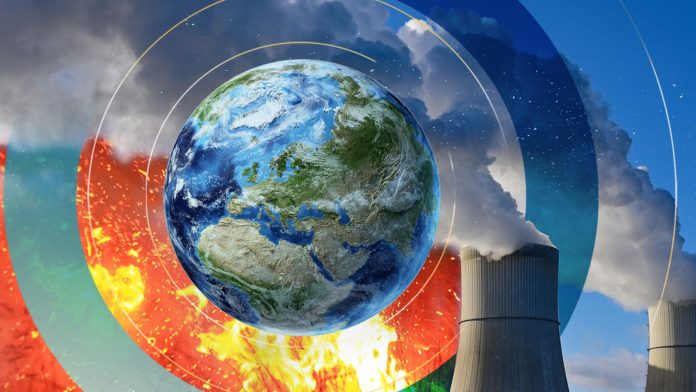In today’s world, a comprehensive understanding of climate change is essential for everyone, as the impending alterations to our planet’s climate pose an urgent and profound threat to global stability and well-being.Climate change is a phenomenon characterized by significant alterations in global temperatures and weather patterns over time, primarily due to human activities. The question before us is multi-faceted: What is climate change? What are its potential impacts? Do we have a strategy to contribute to the reduction of global emissions? How can Pakistan, in particular, adapt to these changes, and how should we allocate funds provided for this purpose?
The catastrophic floods in Pakistan in 2022 serve as a stark reminder of the urgent need to address climate change. These events underscore the delicate balance of our ecosystem, as beautifully created by Allah, where everything exists in harmony. Disturbances in this balance, whether through the excessive emission of greenhouse gases or the depletion of the ozone layer, invite disaster.
Human activities, including industrialization, urbanization, and motorization, have significantly contributed to the increase in greenhouse gases, worsening the greenhouse effect and leading to global warming. This warming has, in turn, led to abnormal temperature rises, altered rainfall patterns, and the untimely melting of glaciers, impacting the flow of the Indus River System and the distribution of water resources, becoming a threat to agriculture, property, and human life.
We should not forget that human actions also contribute to natural disasters, particularly through the mismanagement of land and water resources. Most of the time individuals and authorities often ignore the long-term harmful effects of encroaching on land designated for natural or planned drainage. These encroachments, made for construction or agriculture, block the natural paths intended by nature or urban planning, which can intensify flooding. This issue is deepened by poor governance and inadequate maintenance by government departments, leading to inefficient water management systems. These systems, choked with silt and debris, fail to function properly, significantly increasing the risk of flooding during unexpected weather changes. In essence, societal attitudes, and government inefficiencies both disregard the environmental and safety norms necessary to mitigate disaster risks.
According to data from the Climate Action Tracker, Pakistan ranks among the top 20 global climate polluters, significantly contributing to a disturbing trend that could lead to a 3-degree Celsius increase in global warming. This critical revelation underscores the need for a systematic approach to both mitigating and adapting to climate change. In 2022 alone, the world emitted approximately 50 billion metric tons of greenhouse gases, further emphasizing the urgent need for concerted global action.
Our strategy must encompass legislative measures to prevent water wastage, enhance storage capacity, upgrade existing facilities, and revive traditional irrigation methods, especially in areas like Baluchistan. Additionally, the adoption of remote sensing and GIS for monitoring environmental changes, along with efficient meteorological forecasting, is imperative.
To address emissions at their source, we must focus on industries, vehicles, and practices that contribute significantly to atmospheric pollution. Improving water resource management and conservation strategies will also play a crucial role in making our irrigation systems more efficient and adaptable to climate change, which threatens to increase both floods and droughts.
Climate change will not only lead to more frequent and severe floods but also intensify droughts due to rising temperatures and a declining water table, withelevated temperatures increasing evapotranspiration and significantly boosting the demand for water.
The collaboration of civil society, research bodies, and businesses is essential in understanding and addressing climate change as a collective challenge. Unfortunately, our inter-departmental coordination is non-existent, as a result the efforts often stagnate without broader dissemination or implementation.Together, we can forge a resilient future, mitigating the impacts of climate change and creating a sustainable legacy for the generations to come.
The Ministry of Climate Change and Environment Coordination has made significant developments with the drafting of a national climate policy in October 2021. Alongside, universities and other academic institutions in Pakistan are actively promoting climate awareness through conferences and seminars—a commendable initiative. However, to ensure these efforts are not in vain, it is crucial that the findings and recommendations from these gatherings are systematically compiled and submitted to the Ministry. This will aid in refining and strengthening the national action plan to effectively address climate change. It’s important to recognize that despite these efforts, our national approach often lacks coordination, with different entities working in isolation. Bridging these gaps is essential for a unified and effective response to the climate crisis.
